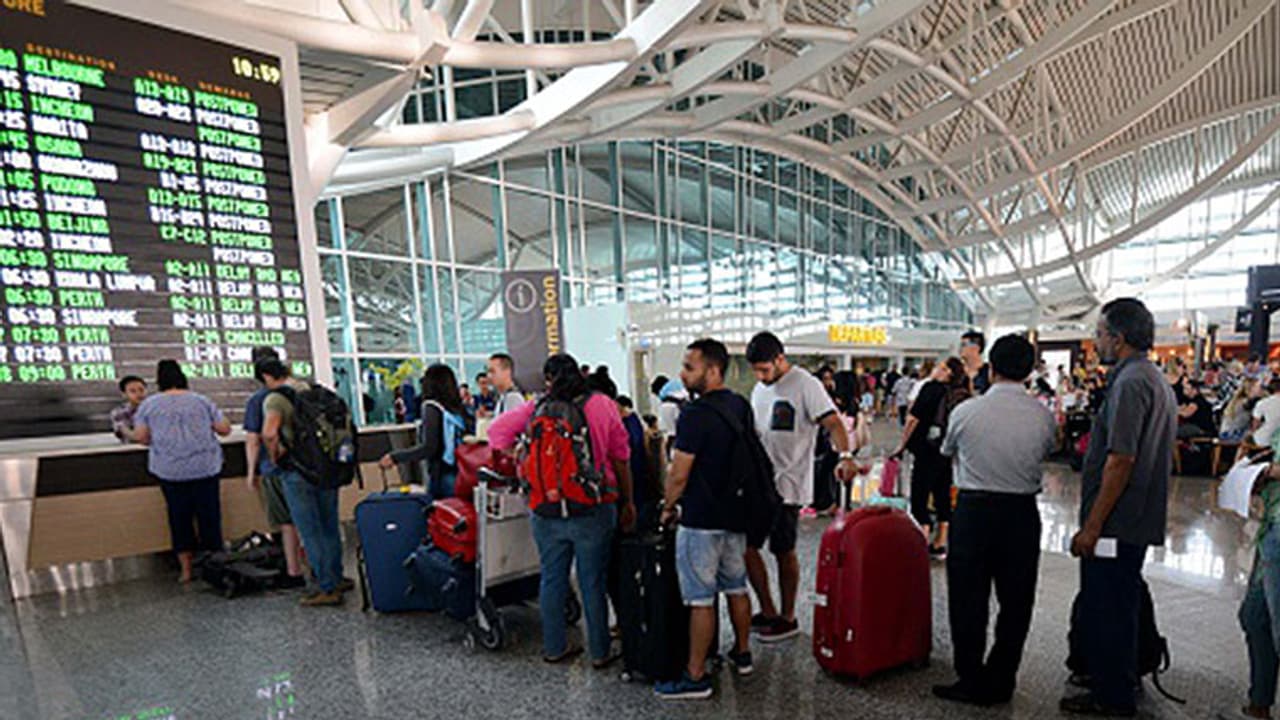The flight ticket or e-tickets won't be needed and the airport database will show all the details of the flight booked. The DigiYatra initiative aims at offering airline travellers in India a ‘digitally unified flying experience’ across all the stages of their journey. Though it mentions optional linking of Aadhaar to passport numbers, we’ve seen how Aadhaar has become the key document over the years.
In the bid to go completely digital, the government is planning to push its pet project further by enabling biometric security over the good 'ol ID cards. The Aviation Ministry's Digi Yatra initiative will be embraced by airport authorities to implement biometrics over flashing of ID cards. This means linking the data bases of the airlines and airports with passengers’ IDs like Aadhaar and passport numbers.

It's a tedious trek through the security at the airport right from the time you reach with your ticket/boarding pass and have to pull out your ID cards to enter, at bag drop and finally head to security. The government of India wants to simplify this by making the whole process paperless using biometric authentication for security.

Some of the key points highlighted were - these factors will help plan trips efficiently by identifying price trends and estimate future airfares at the time of ticket booking, optionally link their Aadhaar to airlines and other ecosystem players at the time of booking for faster airport entry and automated check-ins without requiring any paper-based interventions, and walk-through security scanners owing to advanced biometric security solutions. It mentions everything from digital kiosks to augmented reality apps.
Though it mentions optional linking of Aadhaar to passport numbers, we’ve seen how Aadhaar has become the key document over the years. Today, it is mandatory to link it to your banks, PAN, and a deadline has been set to link it to your mobile phones. So, by extension, we wouldn’t be surprised to see it becoming mandatory to link Aadhaar to passports. Though, the ‘right to privacy’ is seen as a game changer, the decision hasn’t been made yet.
Now, how will biometric authentication actually work? This report adds that flight ticket or e-tickets won't be needed and the airport database will show all the details of the flight booked. There are units being setup to give this a shape. And, they are now working at the cost of the project and the time frame that is required to implement it.
While all this sounds fancy, and a pilot run was seen in Hyderabad.sto It still seems like a long way to go. Airports and airlines, even abroad, have been exploring the biometric screening idea for some time now. British Airways is trying this at the London Heathrow while there are airports in the US where JetBlue and delta are also piloting their respective projects.
The idea is novel as it will help avoid longer queues, especially during hectic hours. Despite this why haven't the plans in London and US expanded swiftly across all airports? The reason is simple - vulnerability. Larger reservoirs of data have been susceptible to hacks, like we have seen in the past.
India's biometric program has often hit the roadblock, owing the multiple times that Aadhaar data was hacked, stolen, leaked and out there for everyone. Though biometrics will make things easier, and is known to be safe, completely security is a myth. Yes, total privacy is as equivalent to believing in fairy tales or Santa. You know it’s not true, no matter how much you want to believe it.
For instance, the implications of simple things like a casual peace sign while being snapped could be worrisome. Now, that may sound weird, but it's true. Research by a team at Japan's National Institute of Informatics (NII) had warned users that high-quality cameras can easily copy the fingerprints in such photos.
When the Samsung Galaxy S8 was launched, one of the key features was its facial recognition technology, along with iris and fingerprint scanner. This was aimed at tightening the security of the device. Later, a new video surfaced by iDeviceHelp showing it may not be the most secure way to lock your device. The video shows that the software can be tricked by using a photograph instead.
Apart from data being compromised, there are other factors too. The software and tools helping implement such programs need to be of high-level of sophistication. And, what happens in case of a machine breakdown. The airport goes into a frenzy?
